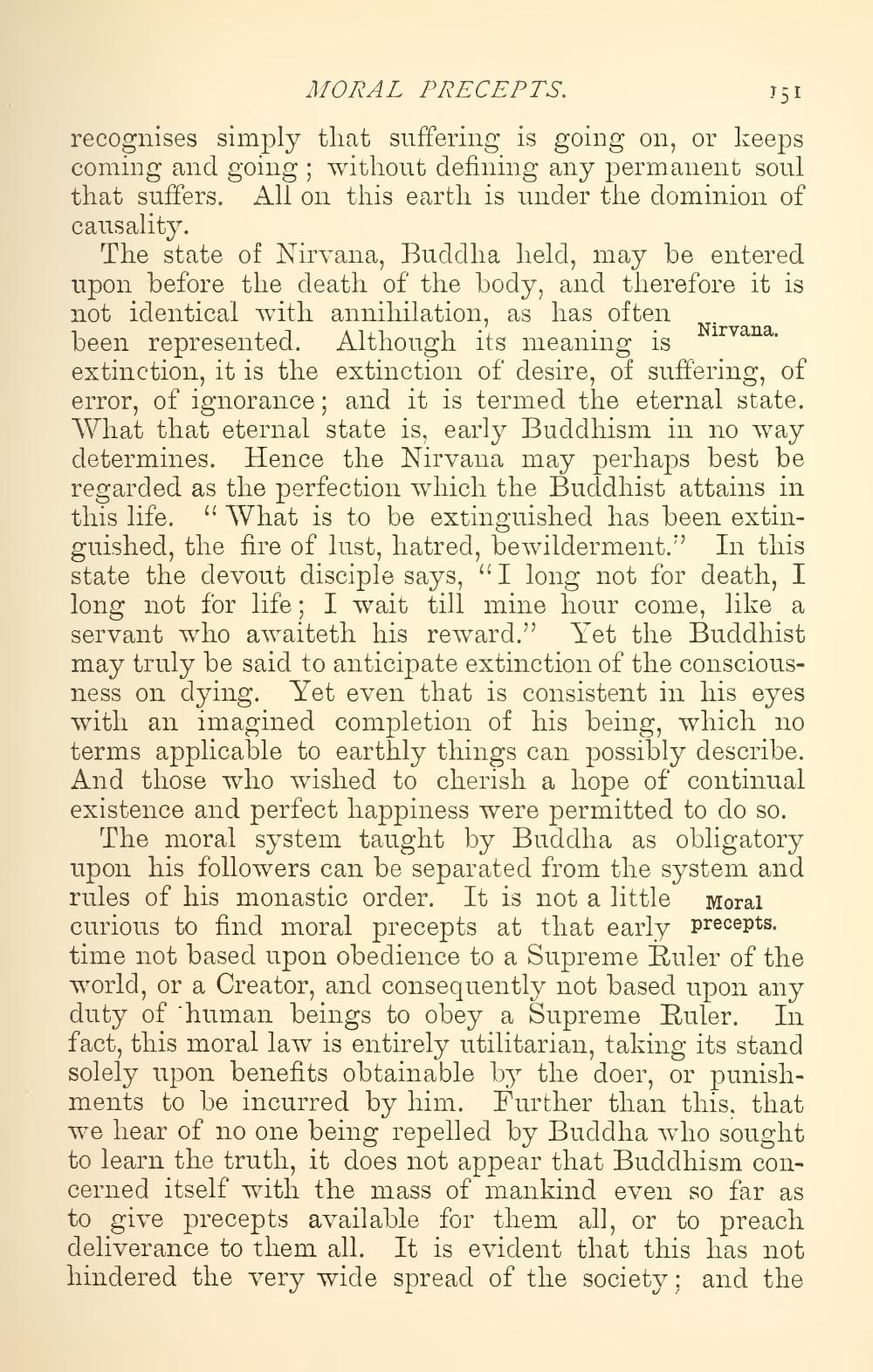________________
MORAL PRECEPTS.
151
Nirvana.
recognises simply that suffering is going on, or keeps coming and going; without defining any permanent soul that suffers. All on this earth is under the dominion of causality.
The state of Nirvana, Buddha held, may be entered upon before the death of the body, and therefore it is not identical with annihilation, as has often been represented. Although its meaning is extinction, it is the extinction of desire, of suffering, of error, of ignorance; and it is termed the eternal state. What that eternal state is, early Buddhism in no way determines. Hence the Nirvana may perhaps best be regarded as the perfection which the Buddhist attains in this life. "What is to be extinguished has been extinguished, the fire of lust, hatred, bewilderment." In this state the devout disciple says, "I long not for death, I long not for life; I wait till mine hour come, like a servant who awaiteth his reward." Yet the Buddhist may truly be said to anticipate extinction of the consciousness on dying. Yet even that is consistent in his eyes with an imagined completion of his being, which no terms applicable to earthly things can possibly describe. And those who wished to cherish a hope of continual existence and perfect happiness were permitted to do so.
The moral system taught by Buddha as obligatory upon his followers can be separated from the system and rules of his monastic order. It is not a little Moral curious to find moral precepts at that early precepts. time not based upon obedience to a Supreme Ruler of the world, or a Creator, and consequently not based upon any duty of human beings to obey a Supreme Ruler. In fact, this moral law is entirely utilitarian, taking its stand solely upon benefits obtainable by the doer, or punishments to be incurred by him. Further than this, that we hear of no one being repelled by Buddha who sought to learn the truth, it does not appear that Buddhism concerned itself with the mass of mankind even so far as to give precepts available for them all, or to preach deliverance to them all. It is evident that this has not hindered the very wide spread of the society; and the




